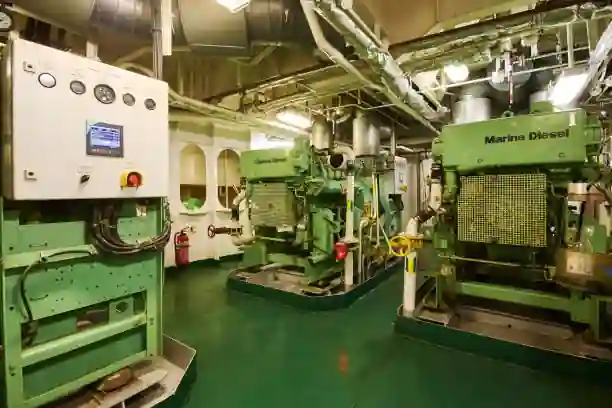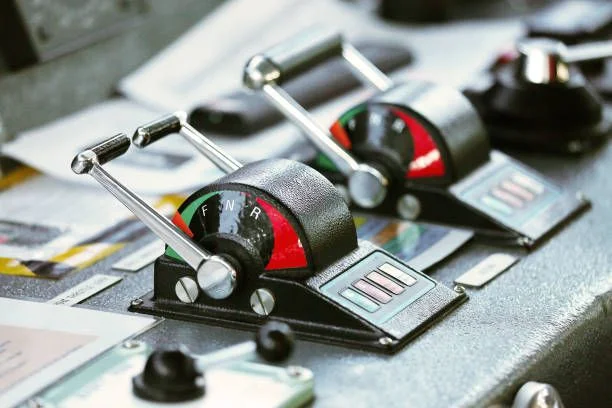
Case Study: Main Engine Control System Upgrade: Reliability, Safety, and Efficiency
- Paul Blake
- Marine Automation
- 02 Aug, 2023
In the vast and ever-evolving realm of marine engineering, ensuring the reliability, safety, and performance of a vessel is paramount. The case of an Oil/Chemical Tanker, built back in 1998, serves as a compelling example of the challenges that can emerge with aging main engine controls. As the existing system approached its end-of-life stage, the vessel's operations and safety were increasingly at risk. Sourcing spare parts and conducting repairs became a costly and daunting endeavor. In this blog, we delve into how Ashmit Engineering stepped in to upgrade the main engine control system of this vessel, enhancing its reliability, safety, and performance while also cutting costs effectively.
The Challenge: An Aging Control System
The Oil/Chemical Tanker vessel, having served for over two decades, began to encounter a critical challenge related to its aging main engine control system. This system had reached obsolescence, a point where it became increasingly difficult and expensive to find spare parts and conduct repairs. The situation posed a significant risk to the vessel's operations and maritime safety.
The Solution: Ashmit Engineering's Expertise
To address this challenge, Ashmit Engineering, known for its prowess in industrial automation and control systems, was entrusted with the task of upgrading the vessel's main engine control system. Leveraging their team of experienced engineers and cutting-edge technology, Ashmit Engineering devised a comprehensive plan to replace the outdated system with a modern, dependable alternative.
The Approach: A Systematic Overhaul
Ashmit Engineering's approach encompassed the following steps:
-
Thorough Assessment: The engineering team commenced with an in-depth assessment of the existing system. This entailed documenting the wiring and configuration while identifying potential challenges. Understanding the ins and outs of the current system was crucial to crafting a suitable replacement.
-
System Development: Following the assessment, the team embarked on creating a tailored, state-of-the-art engine control system, precisely addressing the vessel's unique requirements. This new system would serve as a cornerstone for reliability, safety, and performance improvement.
-
Installation and Testing: The newly developed system was expertly installed on the vessel, followed by rigorous testing to ensure seamless functionality. Crew members were also comprehensively trained in system operation and maintenance to ensure ongoing reliability and safety.
The Results: Enhancing Reliability, Safety, and Cost Reduction
The successful upgrade of the main engine control system on the vessel brought about a multitude of benefits:
-
Improved Reliability and Performance: The modern system proved more reliable and efficient, reducing downtime and enhancing fuel efficiency, ultimately contributing to cost reduction strategies in the oil and gas industry.
-
Reduced Vessel's Maintenance Costs: Easier maintenance of the new system translated to reduced maintenance and repair expenses, demonstrating cost-cutting measures that extend beyond maintenance schedule optimization.
3.** Increased Safety:** The updated system featured enhanced safety mechanisms, substantially improving vessel and crew safety, and ensuring compliance with maritime safety standards.
Conclusion: The Power of System Reliability and Performance
Ashmit Engineering's proficiency in industrial automation and control systems shone through in the seamless upgrade of the main engine control system. The initiative brought about substantial improvements, including heightened reliability, performance, safety, and cost reduction, all critical factors in the highly regulated and demanding maritime industry. By focusing on system reliability and , Ashmit Engineering has delivered a solution that stands as a testament to their commitment to delivering top-tier industrial automation solutions. This project showcases the potential to cut costs and improve performance management in marine vessel operations, further underlining the importance of upgrading control systems for vessels in the oil and gas industry and beyond.

